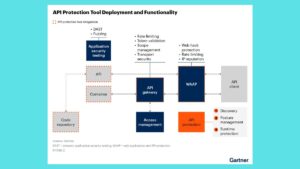HRTech in the Software Industry: Driving Workforce Efficiency and Innovation

The software industry is known for its fast-paced environment, technological advancements, and high demand for skilled talent. As companies navigate rapid growth and continuous innovation, human resources (HR) departments face unique challenges in managing talent acquisition, employee engagement, and workforce development. HR technology (HRTech) has become a critical tool for software companies, enabling them to streamline processes, enhance the employee experience, and stay competitive. This blog explores the role of HRTech in the software industry, its key benefits, trends, and how companies can leverage these technologies for better workforce management.
The Role of HRTech in the Software Industry
HRTech encompasses a wide range of digital tools and platforms designed to improve HR processes and manage the employee lifecycle more effectively. In the software industry, where attracting and retaining top talent is vital, HRTech helps organizations optimize several critical functions:
- Recruitment and Talent Acquisition: Attracting skilled software developers, data scientists, and other tech professionals is a top priority. HRTech solutions streamline the recruitment process, from sourcing candidates to conducting interviews and onboarding new hires.
- Performance Management: Software companies often use agile methodologies, requiring frequent performance evaluations and real-time feedback. HRTech tools enable continuous performance management, goal setting, and feedback, allowing teams to adapt quickly to changes.
- Learning and Development: Given the fast-paced nature of technology, continuous learning is essential in the software industry. HRTech platforms offer learning management systems (LMS) that provide training, skill assessments, and personalized learning paths to help employees stay updated on the latest technologies.
- Employee Engagement and Retention: With a competitive talent market, employee engagement and satisfaction are crucial for retaining skilled workers. HRTech tools support employee surveys, recognition programs, and communication platforms that foster a positive workplace culture.
- Payroll and Compliance Management: Software companies, especially those operating globally, must manage complex payroll and compliance requirements. HRTech platforms ensure accurate payroll processing and help navigate the legal complexities of different markets.
Key Benefits of HRTech for Software Companies
1. Streamlined Recruitment Processes
The software industry experiences a high demand for talent, with companies competing for top engineers and developers. HRTech tools, such as applicant tracking systems (ATS) and AI-powered recruitment platforms, help streamline hiring processes by automating resume screening, scheduling interviews, and managing candidate pipelines. This allows recruiters to focus on engaging with potential hires and improving the candidate experience.
2. Enhanced Employee Productivity
HRTech enables software companies to implement continuous feedback and performance management systems, making it easier to set clear objectives, track progress, and provide timely feedback. With real-time performance tracking, managers can quickly identify high performers, address skill gaps, and implement development plans, resulting in a more productive workforce.
3. Continuous Learning and Skill Development
In the technology sector, new programming languages, frameworks, and methodologies are constantly emerging. HRTech solutions that offer learning management systems (LMS) allow employees to access online training, certifications, and upskilling opportunities. Personalized learning paths can be created based on individual career goals and skills, ensuring employees stay competitive and the organization maintains a knowledgeable workforce.
4. Improved Employee Retention
HRTech tools that focus on employee engagement, well-being, and recognition contribute to higher retention rates. Software companies can use engagement platforms to collect employee feedback, implement recognition programs, and maintain open communication channels. Addressing employee concerns in real time and fostering a culture of recognition help build a positive workplace, reducing turnover.
5. Global Compliance and Payroll Management
Software companies often operate in multiple countries, making compliance with various legal and payroll requirements challenging. HRTech solutions automate payroll processes and help ensure compliance with local regulations by providing accurate record-keeping, tax calculations, and benefits administration. This minimizes the risk of legal issues and enables seamless international operations.
Emerging Trends in HRTech for the Software Industry
1. Artificial Intelligence and Machine Learning Integration
AI and machine learning are being integrated into HRTech solutions to enhance recruitment, performance management, and employee engagement. AI-driven tools can analyze large datasets to identify patterns, predict employee turnover, and match candidates with job requirements more accurately. In performance management, AI helps detect areas for improvement and provides personalized coaching suggestions.
2. Focus on Diversity, Equity, and Inclusion (DEI)
Software companies are increasingly prioritizing diversity, equity, and inclusion initiatives. HRTech platforms support DEI efforts by enabling unbiased recruitment processes, tracking diversity metrics, and offering employee resource group management tools. Software companies can leverage HRTech to foster inclusive work environments and ensure equal opportunities for all employees.
3. Virtual Reality (VR) and Augmented Reality (AR) in Training
Virtual and augmented reality technologies are finding their way into HRTech, particularly for training and development purposes. In the software industry, VR and AR can simulate complex technical scenarios, providing hands-on training for employees in a virtual environment. This immersive learning approach enhances understanding and retention, especially for technical subjects.
4. Employee Well-being and Mental Health Solutions
The software industry is known for its demanding work environment, which can lead to burnout. HRTech is evolving to include tools that support employee well-being and mental health. Platforms offering wellness programs, stress management resources, and mental health support are becoming essential for software companies seeking to improve employee well-being and prevent burnout.
5. People Analytics for Workforce Planning
People analytics is increasingly being used in HR to inform strategic workforce planning decisions. HRTech solutions enable software companies to analyze workforce data to predict future staffing needs, identify skill gaps, and optimize team structures. This data-driven approach helps organizations stay agile and ensures that they have the right talent in place to achieve their goals.
Challenges of Implementing HRTech in the Software Industry
1. Integration with Existing Systems
Software companies often have multiple legacy systems in place. Integrating new HRTech solutions with existing systems can be challenging and time-consuming. Organizations need to ensure that new tools can seamlessly connect with their current infrastructure to avoid data silos and inconsistencies.
2. Data Privacy and Security Concerns
With HRTech handling sensitive employee data, ensuring data privacy and security is critical. Software companies must comply with data protection regulations, such as GDPR and CCPA, and implement robust security measures to prevent data breaches.
3. Adoption and Change Management
Introducing new HRTech solutions can be met with resistance from employees accustomed to traditional methods. Effective change management strategies, including employee training and communication plans, are essential to ensure smooth adoption and maximize the value of new technologies.
Future of HRTech in the Software Industry
The future of HRTech in the software industry will be driven by continued advancements in AI, data analytics, and personalization. As technology evolves, HRTech will play an increasingly strategic role in workforce management, enabling software companies to:
- Predict Workforce Trends: Using predictive analytics to anticipate employee turnover, identify future skill requirements, and optimize recruitment strategies.
- Personalize Employee Experiences: Tailoring HR services, learning opportunities, and career development programs to individual employee needs, enhancing engagement and satisfaction.
- Leverage Automation: Automating routine HR tasks, such as payroll processing and compliance management, allowing HR teams to focus on strategic initiatives.
Conclusion
HRTech is transforming the software industry by streamlining HR processes, enhancing the employee experience, and enabling data-driven decision-making. As software companies continue to navigate rapid growth and technological change, leveraging HRTech solutions will be essential for attracting top talent, optimizing workforce management, and maintaining a competitive edge.
By embracing emerging trends in AI, employee well-being, and people analytics, software companies can stay ahead of the curve and build a more resilient and engaged workforce. The future of HR in the software industry will be shaped by technology, and companies that adopt the latest HRTech innovations will be well-positioned to thrive in an ever-changing business environment.






